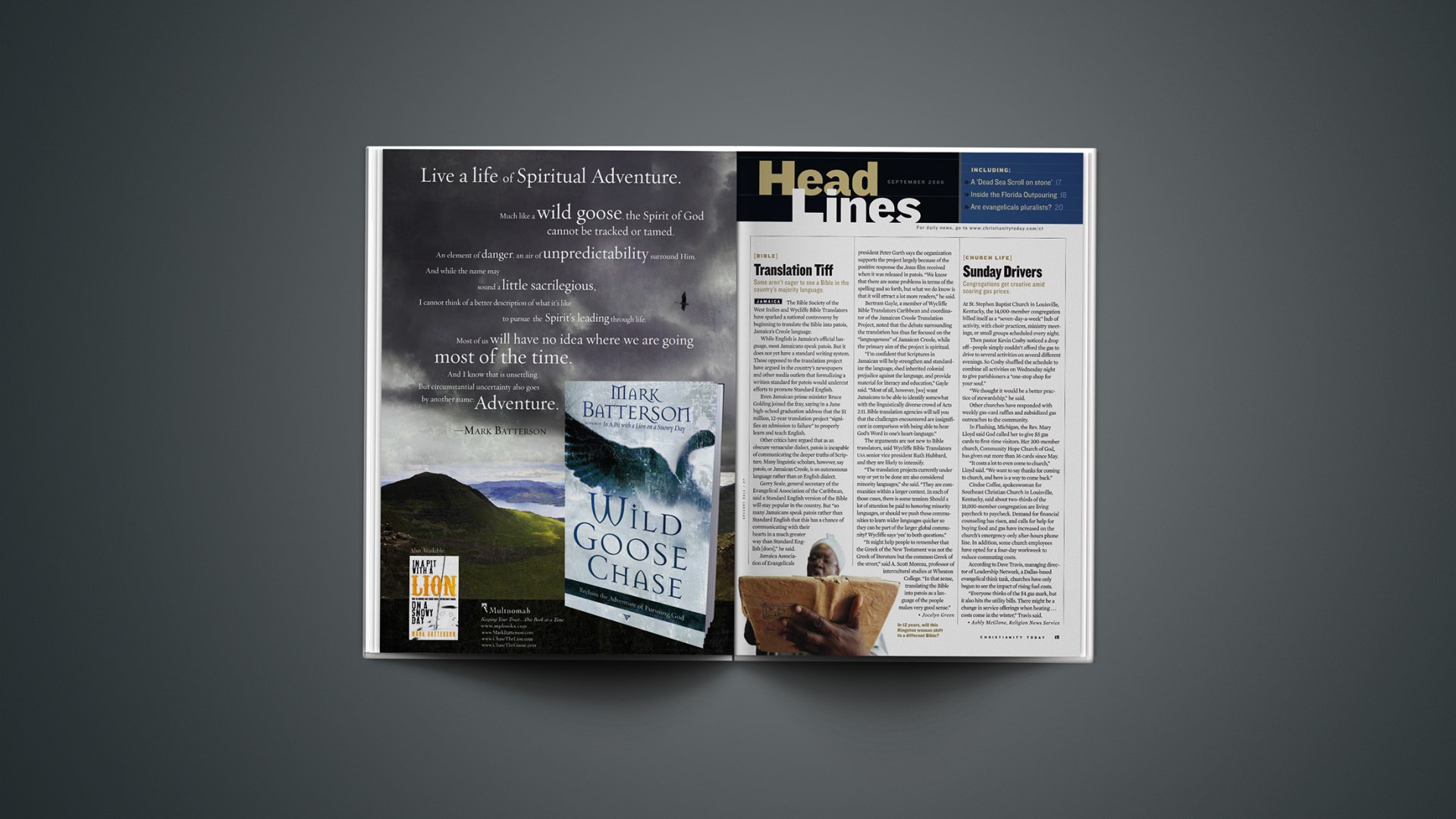The Bible Society of the West Indies and Wycliffe Bible Translators have sparked a national controversy by beginning to translate the Bible into patois, Jamaica’s Creole language.
While English is Jamaica’s official language, most Jamaicans speak patois. But it does not yet have a standard writing system. Those opposed to the translation project have argued in the country’s newspapers and other media outlets that formalizing a written standard for patois would undercut efforts to promote Standard English.
Even Jamaican prime minister Bruce Golding joined the fray, saying in a June high-school graduation address that the $1 million, 12-year translation project “signifies an admission to failure” to properly learn and teach English.
Other critics have argued that as an obscure vernacular dialect, patois is incapable of communicating the deeper truths of Scripture. Many linguistic scholars, however, say patois, or Jamaican Creole, is an autonomous language rather than an English dialect.
Gerry Seale, general secretary of the Evangelical Association of the Caribbean, said a Standard English version of the Bible will stay popular in the country. But “so many Jamaicans speak patois rather than Standard English that this has a chance of communicating with their hearts in a much greater way than Standard English [does],” he said. Jamaica Association of Evangelicals president Peter Garth says the organization supports the project largely because of the positive response the Jesus film received when it was released in patois. “We know that there are some problems in terms of the spelling and so forth, but what we do know is that it will attract a lot more readers,” he said.
Bertram Gayle, a member of Wycliffe Bible Translators Caribbean and coordinator of the Jamaican Creole Translation Project, noted that the debate surrounding the translation has thus far focused on the “languageness” of Jamaican Creole, while the primary aim of the project is spiritual.
“I’m confident that Scriptures in Jamaican will help strengthen and standardize the language, shed inherited colonial prejudice against the language, and provide material for literacy and education,” Gayle said. “Most of all, however, [we] want Jamaicans to be able to identify somewhat with the linguistically diverse crowd of Acts 2:11. Bible translation agencies will tell you that the challenges encountered are insignificant in comparison with being able to hear God’s Word in one’s heart-language.” The arguments are not new to Bible translators, said Wycliffe Bible Translators USA senior vice president Ruth Hubbard, and they are likely to intensify.
“The translation projects currently under way or yet to be done are also considered minority languages,” she said. “They are communities within a larger context. In each of those cases, there is some tension: Should a lot of attention be paid to honoring minority languages, or should we push these communities to learn wider languages quicker so they can be part of the larger global community? Wycliffe says ‘yes’ to both questions.”
“It might help people to remember that the Greek of the New Testament was not the Greek of literature but the common Greek of the street,” said A. Scott Moreau, professor of intercultural studies at Wheaton College. “In that sense, translating the Bible into patois as a language of the people makes very good sense.”
Related Elsewhere:
USA Today reported on the debate.
The Jamaica Gleaner published letters to the editor, including many that argued against the translation.










